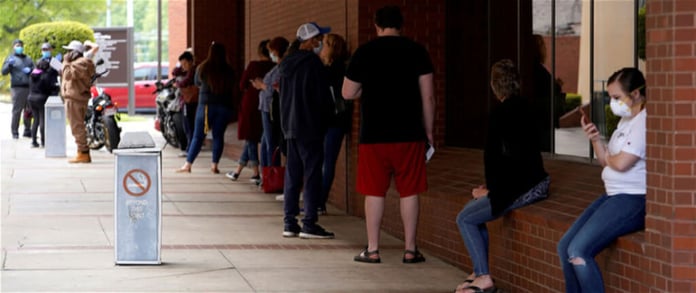These people are protected less than others: in emergency situations, they cannot count on unemployment benefits or any other social support.
The International Labor Organization (ILO) reminds that about 430 million enterprises in the world are on the verge of suspension of work in connection with a pandemic, which means that hundreds of millions of people risk losing income.
Guy Ryder, ILO Director-General, urged governments to take urgent measures to protect the most vulnerable sectors of the population, people who have been hit hardest by the labour market crisis. “For millions of people, lack of income means that they have nothing to eat, their security is at risk, and the future is unknown,” said the head of the ILO, presenting the results of a new study. “Millions of enterprises barely keep afloat.” They have no savings or access to loans. ” “Without help, they will simply disappear,” he added.
Since the start of the pandemic, this is the third ILO publication on the state of the labour market. According to experts of the organization, a total of 3.3 billion people work in the world, two billion of them are employed in the informal sector of the economy, of which 1.6 billion may be left without work in the near future. Since they do not have contracts, no one will pay them severance pay – they will simply be left face to face with their problems.
According to ILO estimates, the income of people employed in the informal sector decreased by 60 percent in the first month of quarantine. Some regions have suffered more than others: for example, in Africa and Latin America, this figure is 80 percent, and in Europe and Central Asia – 70 percent.
According to experts, on a global scale in the second quarter of this year, the working day will be reduced by 10.5 percent, which is equivalent to the loss of 305 million jobs. This is a darker forecast than the previous estimate of a 6.7 percent reduction in working hours (195 million jobs).
In many regions, the situation is developing according to an even more pessimistic scenario. The countries of Europe and Central Asia, for example, are waiting for a reduction in working hours by 11.8 percent.
The ILO is calling for concrete measures to support not only people working without a contract but also the enterprises themselves, especially small businesses. In particular, in the course of economic recovery and a return to the normal rhythm of life, it is necessary to help people with employment, as well as provide social protection for the population.
As the ILO emphasizes, it is very important to establish international cooperation, in particular, to ease the debt burden for low-income countries, so that they can also take packages of measures to stimulate the economy, as did the richer countries.
According to experts, the only way to achieve effective and sustainable recovery at the global level.


